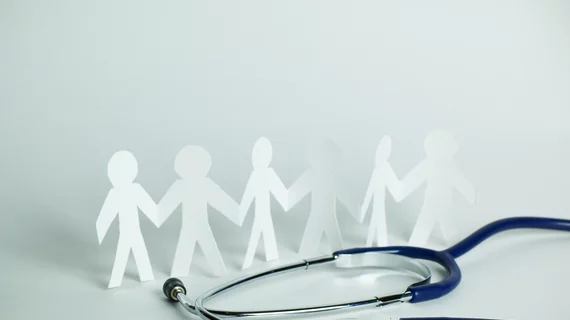How AI can be used to identify high-risk coronavirus patients
As the U.S. continues ramping up its response to the new coronavirus, COVID-19, the role of AI could loom large in helping identify the highest risk patients. Already, AI is being used to monitor the spread of COVID-19, as well as offer some predictions on the rate of infection.
COVID-19 disproportionately impacts those with chronic conditions and compromised immune systems, as well as the elderly. These patients are known to have higher rates of complications and more severe illness––even death––when infected with COVID-19.
Medicaid patients are also some of the most vulnerable medical populations, potentially facing additional barriers to care and treatment for COVID-19, such as homelessness or lack of transportation. With these added challenges, Medical Home Network and CloseLoop.ai are leveraging a predictive health risk screening to identify Medicaid patients with the highest risks of the disease in Cook County, Illinois.
Medical Home Network is a not-for-profit collaborative that provides tools and processes for care teams to engage patients. MHN also has an ACO that is provider-owned, with members that include 10 Federally Qualified Health Centers, three hospital systems and their affiliated physician practices. MHN ACO provides care to roughly 120,000 Medicaid patients in Cook County, which includes Chicago. ClosedLoop.ai is a healthcare data science platform that provides predictive models for healthcare use.
Through the partnership, the two organizations created a predictive model that allowed MHN to reach out to patients likely to have higher risks associated with COVID-19. ClosedLoop.ai’s AI-based predictive model or its COVID-19 Vulnerability Index was used with MHN ACO’s patient demographics, social determinants of health, claims and clinical activity to create the model.
Once identified, MHC ACO will contact high-risk patients and ensure they are connected to primary care practices or other healthcare services.
“We want to identify what we refer to as the ‘socially isolated’ or people without nearby friends or family so our care teams can proactively educate and offer assistance to people in regards to COVID-19,” Art Jones, MD, chief medical officer at Medical Home Network, said in a statement. “Community preparedness is critical. The dedicated MHN care teams who proactively reach out to patients via phone, email or text will help individuals understand what they can do to lower their chance of infection, recognize symptoms of infection and how best to access the advice and care they need.”

